Fertile ground for Japan’s wholesalers
At the end of last month, Japanese trading company Sojitz invested in Finviet Technology Corporation, a software-as-a-service company introducing cashless payment smartphone apps and an online ordering platform for small-scale retail stores in Vietnam. This is the latest deal following Sojitz’s acquisition of Dai Tan Viet, Vietnam’s largest wholesale distributor of food to businesses, last November.
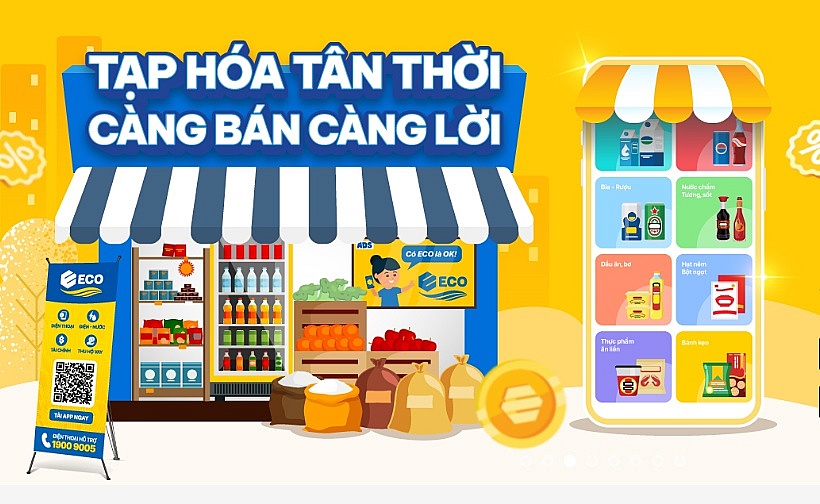 |
| Fertile ground for Japan’s wholesalers - illustration photo |
Finviet’s app aims to improve convenience for distributors and consumers with an online ordering platform that connects the entire supply chain, combined with functions such as cashless payment and loans.
This investment is part of Sojitz’s broad strategy to enhance the purchasing power of Vietnam’s consumers and develop value chains for manufacturing, distribution, and retail.
Besides the acquisition of Dai Tan Viet, Sojitz is working alongside its consolidated subsidiary and major consumer goods wholesaler, Huong Thuy Manufacture Service Trading Corporation, to expand sales channels to create a broadline wholesale food distribution business that supplies independently owned retail stores, mass merchandisers, and mid- to high-end hotels and restaurants.
Sojitz is also considering joint projects with Finviet, which possesses strong online tech platform networks, to further expand Sojitz’s value chain in Vietnam.
In the same month, Mitsubishi Shokunin invested $1.87 million in the Vietnamese food chain Homefarm, which offers meat, imported seafood, and fresh salmon.
Homefarm has quickly expanded its chain from 10 outlets at the end of 2017 to over 160 outlets as of March. The startup has the flexibility to open small stores of about 30-40 square metres in a short period of time in prime locations near wet markets or residential areas. “Vietnam is positioned as one of the pillars of our long-term strategy. We consider the country a promising market and are looking for opportunities to expand our footprint here,” said a Mitsubishi Shokunin representative.
Masataka "Sam" Yoshida, head of the Cross-border Division of RECOF Corporation, told VIR, “Japanese companies like Sojitz and Mitsubishi Shokuhin act as wholesalers and facilitate the distribution, logistics, and settlement between manufacturers and retailers. Indeed, Japanese food manufacturers entered Vietnam in the late 1990s and early 2000s, establishing a strong presence in the modern trade sector.”
However, their challenge as foreign companies lies in expanding beyond modern trade to tap into the local traditional trade market and explore new avenues such as imported products and e-commerce. These emerging markets cater to the demand for healthier, more luxurious, and unique products, Yoshida added.
Vietnam has been recognised by prominent organisations, including the World Bank, as the fastest-growing country in the IT and technology sectors in Southeast Asia. The widespread use of smartphones has made technology indispensable in connecting consumers with product sources, particularly in the food industry.
According to a report by RECOF, the Vietnam-Japan merger and acquisition market in 2023 revealed a clear concentration in two sectors, namely food wholesale and IT software, with five transactions each out of 19 transactions for the year.
This trend shows Japanese companies’ high interest in growing consumption and a highly skilled IT workforce in Vietnam. Some of the notable deals in food wholesale include Kato Sangyo’s acquisition of Nam Khai Phu Service Trading, Morinaga Milk’s acquisition of Morinaga Le May, Dairei’s investment in TBM Consumer, Marubeni’s deal with AIG Asia Ingredients, and Sojitz’s acquisition of Dai Tan Viet.
Vietnamese companies in food and technology garner significant interest from Japanese investors and funds. Elsewhere, Vietnam-based business-to-business food sourcing platform Kamereo also raised $2.1 million, co-led by Reazon Holdings, Quest Ventures, and Foodison CEO Thoru Yamamoto in March.
Kamereo founder Taku Tanaka said, “We differentiate ourselves by developing a comprehensive supply chain that spans from upstream to downstream within the country. Building such a system is time-intensive and capital-heavy, which deters many from undertaking it. However, this investment in our supply chain is a strategic advantage, providing us with cost benefits and stable supply and pricing over time.”
Kamereo plans to deepen its cooperation with Japanese businesses to strengthen its ability to build efficient supply chains in Vietnam, and it has launched a ready-to-eat product following Japanese technology and standards.
“Despite its size, the Japanese market is saturated, with limited growth potential in the future. Consequently, it’s natural for major Japanese wholesale companies to turn their attention to the Vietnam market,” Tanaka said.
Satoshi Kuriga, head of global investments at Reazon Capital said, “The food supply chain in Vietnam is not yet fully developed, presenting substantial unmet needs and pain points that new players can capitalise on. There are no major conglomerates dominating the local market, and most existing players are smaller enterprises. This allows for potential differentiation through operational capabilities, technological advancements, and investment.”
For food trading, operational capabilities and trading volume are currently crucial because the food supply chain in Vietnam is still in its developmental stage, Kuriga added. “Therefore, having extensive coverage of the food supply chain and a solid client base is vital to succeeding in this market, like the dominance of major players in other countries,” he said.
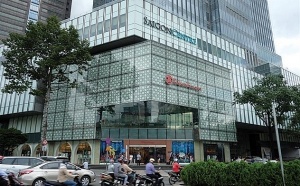 | Japanese retailer Takashimaya to advance project in Hanoi Japanese retailer Takashimaya is strengthening its foothold in Vietnam with a plan to launch a shopping centre in Hanoi by 2026. |
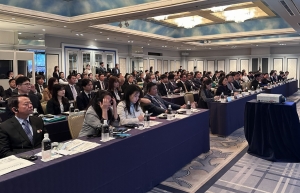 | Dong Nai woos Japanese investors More than 100 Japanese investors, with 200 more Vietnamese and Japanese attending online, participated in a conference to promote investment in the southern province of Dong Nai held in Tokyo on April 24. |
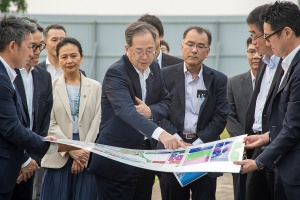 | Japanese leaders hold further talks to make North Hanoi Smart City a reality Japanese government agencies have held meetings with leaders of a consortium between Vietnam's BRG Group and Japan's Sumitomo Corporation to push progress on the North Hanoi Smart City project. |
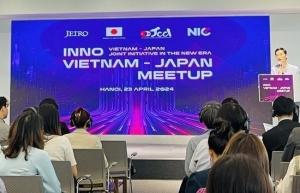 | Japanese see potential with startup initiatives Amid slow capital flow into frontier financial markets, Japanese funding continues to flow into local startups to strengthen market footprint. |
What the stars mean:
★ Poor ★ ★ Promising ★★★ Good ★★★★ Very good ★★★★★ Exceptional
Related Contents
Latest News
More News
- Kurz Vietnam expands Gia Lai factory (February 27, 2026 | 16:37)
- SK Innovation-led consortium wins $2.3 billion LNG project in Nghe An (February 25, 2026 | 07:56)
- THACO opens $70 million manufacturing complex in Danang (February 25, 2026 | 07:54)
- Phu Quoc International Airport expansion approved to meet rising demand (February 24, 2026 | 10:00)
- Bac Giang International Logistics Centre faces land clearance barrier (February 24, 2026 | 08:00)
- Bright prospects abound in European investment (February 19, 2026 | 20:27)
- Internal strengths attest to commitment to progress (February 19, 2026 | 20:13)
- Vietnam, New Zealand seek level-up in ties (February 19, 2026 | 18:06)
- Untapped potential in relations with Indonesia (February 19, 2026 | 17:56)
- German strengths match Vietnamese aspirations (February 19, 2026 | 17:40)

 Tag:
Tag:




















 Mobile Version
Mobile Version